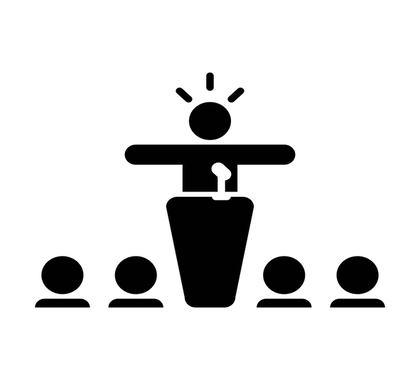Throughout 2021, many states have suffered from labor shortages, unprecedented inflation, and an ever-worsening supply chain crisis. Because of the perilous economic situation, several states are considering quick fixes to address their financial problems, even though these so-called quick fixes would likely make matters worse over the long term.
In Missouri, lawmakers recently introduced a bill that would hike the state’s minimum wage. Specifically, Senate Bill 893 proposes raising the state’s minimum wage from $10.30 per hour to $15 per hour, by January 1, 2026. If passed, SB 893 would incrementally increase Missouri’s minimum wage, beginning with an increase of one dollar per hour effective January 1 of each year until it reaches $15 per hour in January 2026. Furthermore, SB 893 stipulates after 2026 the minimum wage rate shall be increased on January 1, 2027, and on January 1 of successive years.
Senate Bill 893 exactly mirrors the text of Missouri House Bill 979 and serves as its Senate accompanying legislation. Overall, it is clear members of the Missouri Legislature in both the House and Senate are seriously considering minimum wage hikes despite the fact that the Show Me State experienced severe state and federally imposed lockdowns during the coronavirus pandemic, which sent shockwaves throughout the small business ecosystem that are still being felt. Consequently, a minimum wage hike in 2022 could not be more ill-timed. In an analysis based on self-recorded closures in their database, Yelp estimates that 60 percent of U.S. businesses have been devastated by the pandemic.
Given the ongoing economic upheaval, it is not surprising that some Missouri lawmakers are considering implementing minimum wage increases in an attempt to provide relief to their struggling constituents. However, this is a deeply flawed and ineffective way to improve the economy.
Moreover, arbitrary minimum wage hikes produce unintended consequences that can inflict even more pain upon the very people they are supposed to benefit. Sadly, minimum wage hikes are one of the most significant reasons grocery store and fast-food chains have moved toward self-checkout kiosks in place of employees, especially teenagers, who have often previously occupied those positions.
Economists Grace Lordan and David Neumark showcase the effects of minimum wage hikes in relation to the increase of automation as a replacement for people in low-wage jobs in their working paper, People Versus Machines: The Impact of Minimum Wages on Automatable Jobs. Lordan and Neumark find that raising the minimum wage increases the likelihood that low-skilled workers become unemployed or employed in inferior jobs, based on data collected from 1980 to 2015.
Minimum wage hikes rarely meet the expectations of the policymakers who advocate for them. For example, they do not raise the living standards in any appreciable way for individuals and families, yet illogical wage increases have the propensity to shutter small businesses for good.
A recent study by the Congressional Budget Office titled “The Effects on Employment and Family Income of Increasing the Federal Minimum Wage” examines how increasing the federal minimum wage to $10, $12, or $15 per hour by 2025 would adversely affect employment and family outcomes, especially among teenagers and those at the bottom rungs of the income ladder.
Minimum wage hikes also impose a myriad of unintended consequences upon all businesses, especially small businesses—the lifeblood of the American economy. Minimum wage increases force businesses to reallocate capital to cover the increase in employees’ wages, ultimately forcing them to alter spending elsewhere to offset their newly increased labor costs. More times than not, this results in less hiring, a reduction in work hours, and higher prices for consumers. For many small businesses, a minimum wage hike results in bankruptcy, as they are no longer able to remain profitable due to substantially increased labor costs.
Minimum wage hikes are never a viable economic solution. A 2007 study from economists at the University of California-Irvine and the Federal Reserve Board comprehensively examined the body of work on the subject and found 85 percent of the studies they considered credible demonstrate minimum wage hikes cause job losses for less-skilled employees. Furthermore, a 2010 study by economists at Cornell University and American University found no reduction in poverty in the 28 states that raised their minimum wage laws from 2003 to 2007.
At the national level, a recent report from the Employment Policies Institute (EPI) found that a minimum wage hike would cost the U.S. economy two million jobs. The EPI study notes that of those two million, the jobs most likely to vanish are in the restaurant and hospitality industries. These two sectors were decimated by the pandemic. Forcing businesses in these industries, particularly small businesses, to drastically raise their labor costs would devastate the few that have hung on during this harrowing period.
Failed businesses don’t pay property taxes, income taxes, sales and use taxes, and the dozens of other licensing and regulatory fees that governments rely on for revenue. Therefore, arbitrary minimum wage hikes could result in further restricting government revenue, exacerbating budget deficits caused by the pandemic. While politically popular, the downstream effects of a minimum wage increase would certainly create long-term challenges for Missouri.
It is unwise for Missouri lawmakers to push minimum wage hikes, which result in business closings and increased unemployment, especially when joblessness remains high due to the pandemic fallout. According to a brief published by the Congressional Research Service, during the pandemic, the unemployment rate reached catastrophic levels, unseen in decades. Even more worrisome, the U.S. labor participation rate has fallen precipitously since the pandemic began more than a year ago.
It is disingenuous for Missouri lawmakers to push minimum wage hikes, which result in business closings and increased unemployment, especially when unemployment remains high in the Show Me State. According to Wallet Hub, Missouri experienced a 13.6 percent increase in unemployment from September 2019 to September 2021.
To make matters worse, we seem to be on the cusp of a period of significant inflation. The United States Postal Service (USPS) has recently projected its rate hikes through 2024 via a recent filing with Postal Regulatory Commission. The decision by USPS to include rate increases every six months through 2024 likely corresponds to their assessment of consumer price increases emblematic of inflationary pressure.
Although attempts to bolster a minimum standard of living and protect low-skilled workers are laudable, the overall economic effects of proposed minimum wage hikes accomplish neither of those worthy goals. Arbitrary minimum wage hikes, out of sync with the laws of supply and demand, would do little to lift struggling individuals and families in Missouri from poverty while destroying jobs and likely increasing government dependence.
The following documents provide more information about minimum wage laws.
Busting 5 Myths about the Minimum Wage
http://blog.heritage.org/2013/03/05/busting-5-myths-about-the-minimum-wage/
James Sherk of The Heritage Foundation debunks five myths about minimum wage hikes, often used by proponents of minimum wage laws: “A higher minimum wage would help some workers, but few of them are poor. The larger effect is hurting the ability of potential workers living in poverty to get their foot in the door of employment. A minimum wage hike might help politicians win plaudits from the press, but it wouldn’t reduce poverty rates.”
Unintended Consequences of Raising the Minimum Wage
http://mercatus.org/publication/unintended-consequences-raising-minimum-wage
Antony Davies of the Mercatus Center examines arguments for and against minimum-wage increases and presents new results comparing employment for workers with differing educational attainments.
The Negative Effects of Minimum Wage Laws
https://heartland.org/publications-resources/publications/the-negative-effects-of-minimum-wage-laws
Mark Wilson of the Cato Institute reviews the economic models used to understand minimum wage laws and examines available empirical evidence. Wilson describes how most of the academic evidence shows minimum wage laws have negative effects, and he discusses why some studies produced seemingly positive results.
The Effects on Employment and Family Income of Increasing the Federal Minimum Wage
https://www.cbo.gov/system/files/2019-07/CBO-55410-MinimumWage2019.pdf
The Congressional Budget Office examines how increasing the federal minimum wage to $10, $12, or $15 per hour by 2025 would affect employment and family income across the nation. This shows that while minimum wage increases will provide some level of raised wages for some individuals, it will also lead to many workers across the nation losing their jobs.
Two-thirds of Americans favor raising the federal minimum wage to $15 an hour
The Pew Research Center conducted a survey in the spring of 2020 regarding the public approval of raising the federal minimum wage to $15 an hour. This shows the overwhelming trend of many across the nation believing that minimum wage increases are a viable way to pull Americans out of poverty.
___________
Nothing in this Research & Commentary is intended to influence the passage of legislation, and it does not necessarily represent the views of The Heartland Institute. For further information on this and other topics, visit the Budget & Tax News website, The Heartland Institute’s website, and PolicyBot, Heartland’s free online research database.
The Heartland Institute can send an expert to your state to testify or brief your caucus; host an event in your state; or send you further information on a topic. Please don’t hesitate to contact us if we can be of assistance! If you have any questions or comments, contact Heartland’s Government Relations department, at [email protected] or 312/377-4000.




